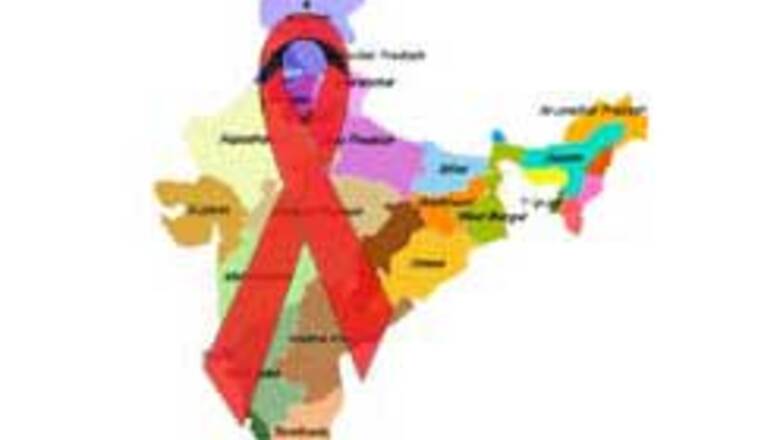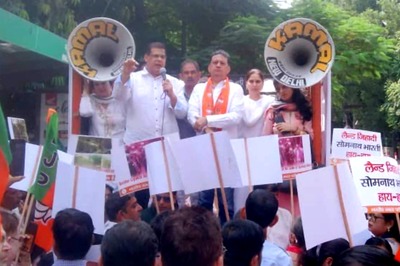
views
New Delhi: India must get on top of its HIV epidemic by next year or risk seeing it spiral out of control, the man who controls the richest private anti-AIDS fund in the country and a senior United Nations official warned.
"The signs are still ominous," Director of the Bill & Melinda Gates Foundation's $258-million Indian HIV-prevention project, Ashok Alexander, told Reuters in an interview.
He said the rising prevalence of HIV in more than 100 districts in which the foundation operates showed that a decade of Government efforts had not slowed the virus, which is now estimated to have infected 5.7 million Indians.
"The huge challenge is scaling up prevention efforts. 2007 is when we need to have done this by," added Alexander, who has repeatedly said India's epidemic is at a tipping point.
"It's very urgent." Alexander, speaking at the foundation's New Delhi offices on Friday, said old-fashioned and inefficient management within the Government's National AIDS Control Organisation (NACO) was the main obstacle to success.
India coordinator for the UN's HIV-prevention agency, UNAIDS, Denis Broun, said that in the worst-case scenario, the virus could spread to infect 3 per cent of India's billion-plus population in the next 5 to 10 years, up from 0.9 per cent now.
India already has more HIV-positive people than any other country, UNAIDS says.
The AIDS-causing virus is presently thought to be largely confined within a sexual triangle of poor, male migrant workers, the prostitutes they visit, and their wives back home. For that reason, the Gates Foundation spends much of its efforts telling the first two groups to use condoms.
Widespread Ignorance
Broun said India must aim to get 80 per cent of its prostitutes to insist on their clients using condoms if the number of new infections each year is to drop significantly below the estimated 400,000 annual deaths from AIDS in India.
Safe sex messages from the Government and NGOs are currently heard by about a quarter of Indian prostitutes, Broun said. If India fails to convince many more of the importance of condoms, the country's repeatedly delayed efforts to get ever more people with AIDS on life-prolonging antiretroviral drugs are doomed to forever lag behind new infections.
"We have slow growth - it's not an explosion - but it's enough to make any expansion of the treatment programme unsustainable, financially and technically," Broun told Reuters by telephone.
Alexander, who worked at consultancy firm McKinsey & Co for nearly two decades, praised India's recently finalised HIV strategy, which will see it spending $2.5 billion over the next five years on prevention and treatment.
But whether it will be carried out effectively is far from assured, he said. He was not surprised by a recent poll of parliamentarians showing widespread ignorance of HIV, with nearly two-thirds wrongly believing it could be spread by sharing clothes with an infected person.
"The interesting counterpoint is that the same thing was done with sex workers in Mumbai and they scored over 90 per cent," he said. "Your average Mumbai commercial sex worker is probably the most informed in the country when it comes to HIV."




















Comments
0 comment